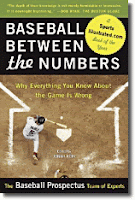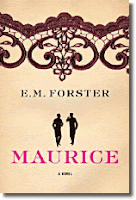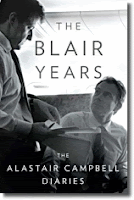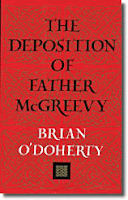 Jonah Keri is a regular contributor to ESPN.com's "Page 2" and the editor and co-author of Baseball Between the Numbers: Why Everything You Know about the Game Is Wrong.
Jonah Keri is a regular contributor to ESPN.com's "Page 2" and the editor and co-author of Baseball Between the Numbers: Why Everything You Know about the Game Is Wrong.Last week I asked him what he was reading. His reply:
Book I'm reading now: The Kite Runner by Khaled Hosseini. Because I wear two hats as both a sportswriter (primarily for ESPN.com, with occasional contributions to Salon.com, YESNetwork.com and other sites) and a stock market writer (Keri recently penned a feature for Salon.com, "The 18 best Jewish ballplayers of all time."Investor's Business Daily), I need to constantly stay up to date on the latest sports and business books. That doesn't leave much time for novels, so it can take me a while to get to some books, even hugely popular ones like The Kite Runner.
With that said, I'm loving it. The subject matter is almost irrelevant. What draws you in is the rich, yet crisp writing, which immediately sucks you into the narrative and the characters' lives. I'm only about 1/3 of the way through it, but find myself sneaking away from work to dive back into the story. If you work from home like I do, do not read this book. It will mess with your productivity.
Book I recently enjoyed: The Cheater's Guide to Baseball by Derek Zumsteg. If you're a big fan of the game and a big baseball historian, you'll love this book. But it's an excellent read even if you're not. The stories detailing how players, managers, groundskeepers and other baseball personnel use underhanded, often illegal tactics to gain an edge on the other team are almost unbelievable. Teams stealing signs by sticking someone inside a manually-operated scoreboard in the outfield, pitchers loading up balls with all manner of foreign substances, grounds crews watering down the dirt around first base to slow down opposing base stealers -- all the best cheating stories are in here, in some cases with how-tos for the reader. It's also rare to see an author combine this much serious research with such a light-hearted, irreverent tone. A great, breezy read.
[Full disclosure -- Derek is a friend of mine, and I made some very minor contributions to the project (though I don't see a dime, regardless of how many copies get sold).]
Visit Jonah Keri's website for more links to his work.
--Marshal Zeringue


































